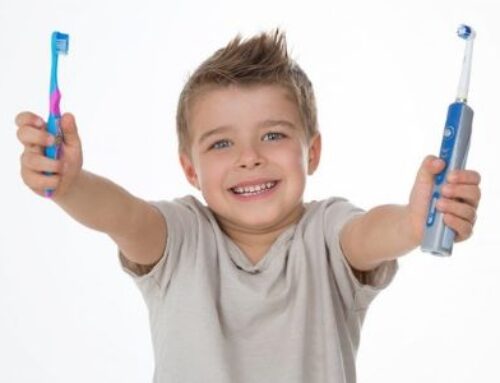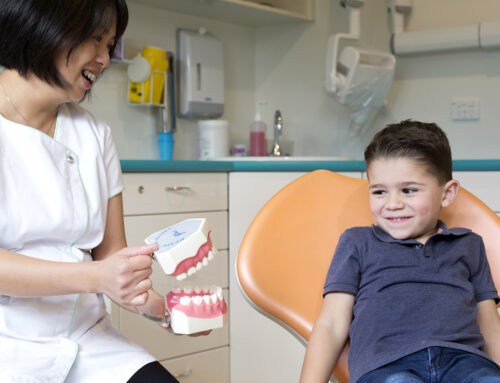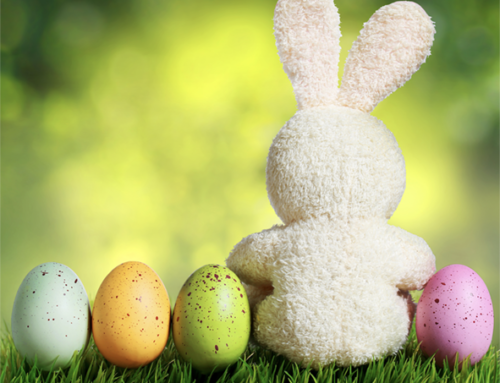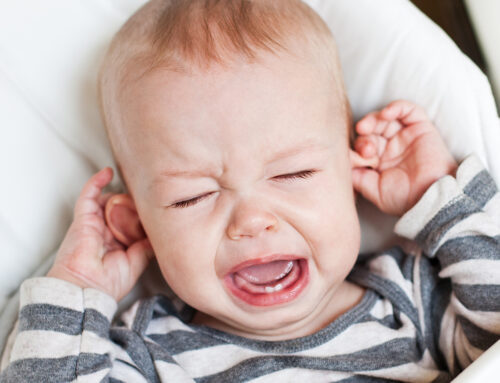What is teeth grinding and can it cause harm to infants?
Most of the time parents are happy just to get their kids to fall asleep, but have you ever noticed your child grinding their teeth? Teeth grinding, or commonly known as “bruxism” is a problem that can lead to dental complications in adults. Bruxism is characterized by clenching and grinding of the teeth. But, is it bad for babies and children to be grinding their teeth?
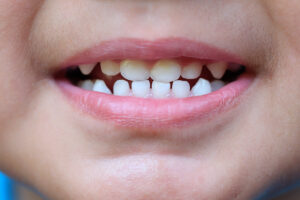 While there is no hard evidence about the cause of babies grinding their teeth, the majority of experts believe that they do this to soothe sore gums during teething. Additionally, some think that your little ones are simply testing out their new smile to get used to the feeling of their teeth. I think most dental experts can agree that infants grinding their teeth is harmless.
While there is no hard evidence about the cause of babies grinding their teeth, the majority of experts believe that they do this to soothe sore gums during teething. Additionally, some think that your little ones are simply testing out their new smile to get used to the feeling of their teeth. I think most dental experts can agree that infants grinding their teeth is harmless.
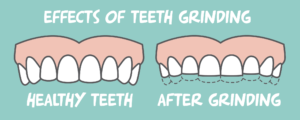 What about teeth grinding in children?
What about teeth grinding in children?
Teeth grinding in children, however, can often be linked to other causes and in some instances, grinding can also relate to airway and breathing problems. With persistent teeth grinding, the enamel surfaces of the teeth can wear down and cause sensitivity.
What are the causes of teeth grinding?
Evidence shows that teeth grinding in children can be related to one or a combination of the following problems:
- central (neuropathic disorder, anxiety)
- genetic and local (posture, mouth breathing).
Commonly children may grind their teeth when they are stressed or anxious, usually, this behaviour is witnessed while they are awake. Teeth grinding during sleep however in recent literature has in some cases been linked to children with upper respiratory problems. A positive correlation exists between children who have sleep-disordered breathing patterns (e.g frequent mouth breathing and snoring during sleep) and teeth grinding.
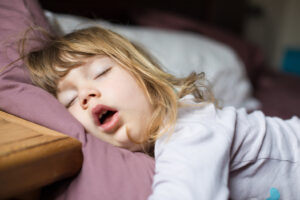 What can I look out for as a parent?
What can I look out for as a parent?
Often knowing if your child grinds their teeth can be difficult as they may not be aware of it themselves. The best thing to do is to check-in on them at night to discover whether they are making teeth grinding noises while they are asleep. Sometimes it is helpful to ask a sibling who may share the room with them.If your child complains of a sore jaw, or pain when chewing, these can also signal bruxism. Is he particularly worried or angry about anything? If these emotions coincide with the sound of teeth-grinding while they sleep, it’s time to pay attention. Kids experience a lot of anxiety in general, and you may need to address the root cause through other medical treatment or stress-relieving interventions, like a warm bath or soothing music before bedtime.
What next?
If you have concerns regarding teeth grinding it is best to consult with a dental professional for further advice. CONTACT US at Kiddies Dental Care to make your appointment and talk to one of our team. We have new and exciting treatments that may help you and your child.
Kay (Karishma), our Oral Health Therapist at the Werribee Clinic has put together this great information on teeth grinding If you want to talk to her about this or any other questions you may have, please contact us and make an appointment on 03 9372 8960.
References
- Sleep-Related Breathing Disorders and Bruxism.(PMID:26022906) Kostrzewa-Janicka J, Jurkowski P, Zycinska K, Przybylowska D, Mierzwinska-Nastalska E. Adv. Exp. Med. Biol. [2015]
- Pediatric Sleep Disordered Breathing/Obstructive Sleep Apnea, American Academy of Otolaryngology. Yosh Jefferson, DMD, MAGD. 2009
- Bruxism: a literature review. (PMID:21886404). Shetty S, Pitti V, Satish Babu CL, Surendra Kumar GP, Deepthi BC. J Indian Prosthodont Soc [2010]
- https://www.colgate.com/en-us/oral-health/conditions/bruxism/bruxism-in-children-what-to-look-for-and-how-to-treat-it-0615
